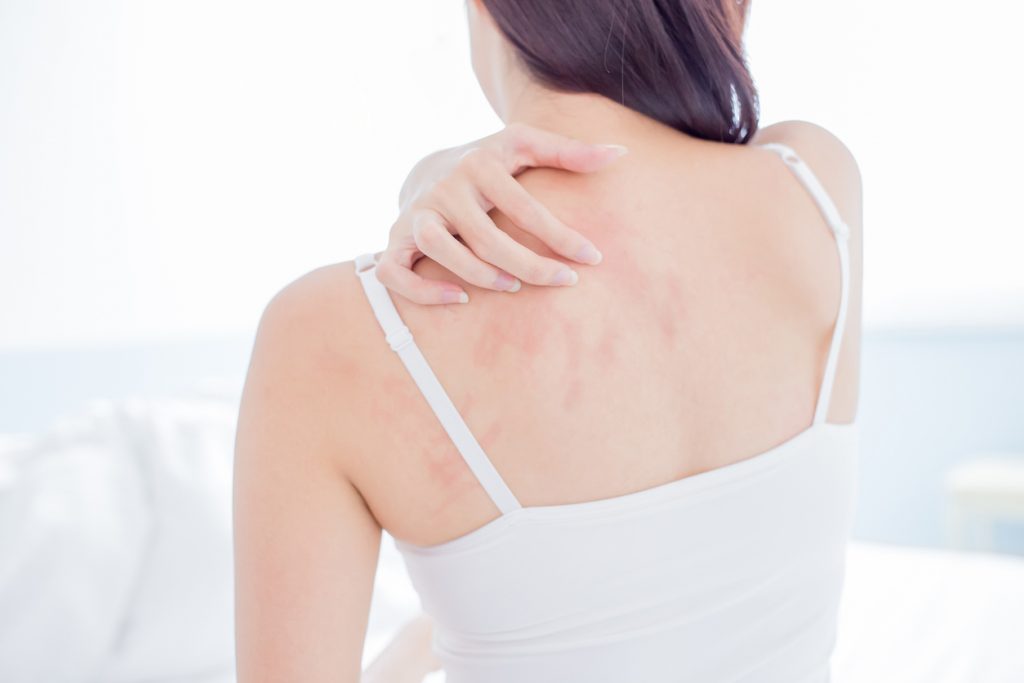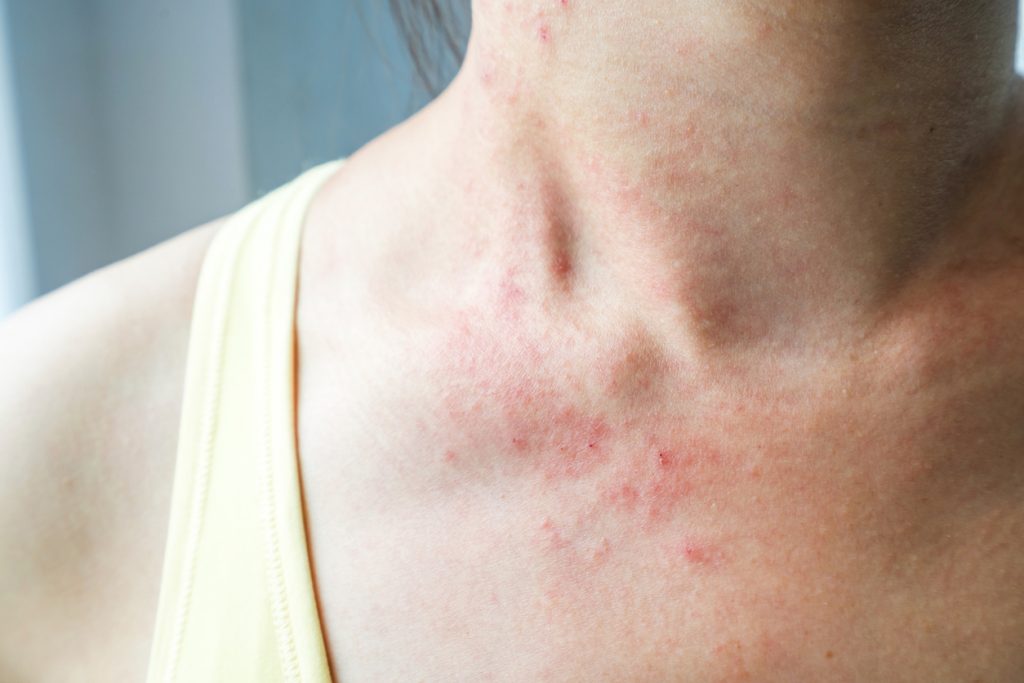Skin conditions: What is eczema and what causes it?
While we’ll all have skin conditions or the odd rash in our lifetime eczema is a specific condition that causes the sufferer repeated dry and itchy patches on their skin.

Very common and often present since childhood eczema is condition that causes the skin to become inflamed, itchy, flaky, or bumpy. Eczema, or ‘atopic dermatitis’ (atopic meaning – sensitivity to allergens) isn’t contagious, is often hereditary and in many cases goes hand-in-hand with asthma and hayfever / allergies, which is often referred to by doctors as the ‘atopic triad’.
When eczema flares up the inflamed, itchy skin patches are typically on the sufferers’ arms and behind the knees although eczema can appear anywhere on the skin. Many things cause eczema, genetics as previously mentioned, as well as certain conditions and substances.
- Immune system
- Genetics
- The environment
- Emotional triggers
From the change in the weather, heat, low humidity, to the temperature within a home and the workplace and sweating can impact eczema. Emotional stress and anxiety, irritants such as detergents and soaps, different fabrics for example wool as well as allergens (pollen, dust mites, foods, and mould) are all known eczema causes.

What are the symptoms of eczema?
The following are how an eczema flare-up may present in a suffer:
- Itchiness
- Dry and cracked skin
- Rash, swollen skin that can vary in colour depending on the tone of the skin
- Oozing and crusting
- Raw skin from over-scratching
- Raised bumps on the skin
- Darkening of the skin around the eyes
Different types of eczema
There are several different types of eczema, and it is possible to have more than one type. The following are the most common forms of dermatitis (skin inflammation)
- Contact dermatitis – a skin rash caused by a specific substance
- Atopic dermatitis – an itchy inflammation of the skin
- Stasis dermatitis – skin inflammation in the lower legs caused by fluid build-up
- Nummular dermatitis – coin-shaped sores or rashes
- Seborrheic dermatitis – scaly patches and red skin predominantly on the scalp
- Dermatitis herpetiformis – a chronic incredibly itchy skin rash made up of bumps and blisters
Eczema treatments
At present there are a variety of treatments for the different types of eczema but no cure. As with any health concern the best place to start is with your health practitioner, once the eczema (and specific type) has been diagnosed they will guide you through the triggers and treatments.
Treatments vary depending on the severity of the eczema but knowing your personal triggers is crucial and avoid them where possible. Managing your eczema can be as simple as using daily moisturiser that are hypoallergic and fragrance free as well as bathing or showering with hypoallergenic soaps and bath oils.
In severe cases a referral to see a specialist, a dermatologist, will be part of a patient’s suggested treatment plan. If you are experiencing symptoms, you should speak to a doctor to find out the right treatment for you. You can request a telehealth consultation with one of our Australian-registered doctors from anywhere in Australia, seven days a week.
To speak with an InstantScripts Doctor:
Request a ConsultationIf you have run out of your script:
Request a Script© InstantScripts
Level 8 / 637 Flinders St.,
Docklands VIC 3008

